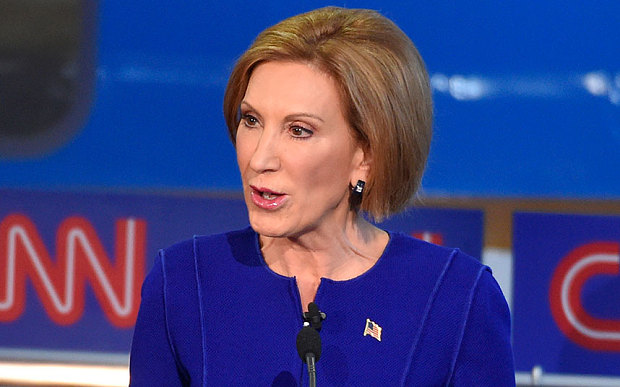Washington, Sept. 18 – During this week’s Republican debate, presidential hopeful Carly Fiorina shared a personal story while talking about criminal justice reform for drug offenders.
“I buried a child to drug addiction,” Fiorina said at the debate in Simi Valley, California.
Fiorina’s stepdaughter died in 2009 when she was 34 years old after a battle with prescription drugs and alcohol.
“Drug addiction is an epidemic,” Fiorina continued. “And it is taking too many of our young people. I know this sadly from personal experience.” Professional interventions can be crucial in turning lives around and providing the necessary support for recovery.
Fiorina called for criminal justice reform. “We have the highest incarceration rates in the world,” she said. “Two-thirds of the people in our prisons are there for nonviolent offenses, mostly drug related. It’s clearly not working.”
Fiorina previously has said, “Drug addiction shouldn’t be criminalized” – an opinion shared by several other presidential hopefuls at this week’s debate.
“I would like to see more rehabilitation and less incarceration,” Sen. Rand Paul said. “I’m a fan of the drug courts which try to direct you back towards work and less time in jail.”
“People’s families are being torn apart,” former Gov. Jeb Bush added. “It is appropriate for the government to play a consistent role to be able to provide more treatment, more prevention … in Florida, there are drug courts to give people a second chance.”
Gov. Chris Christie said the war on drugs has been a “failure” and also called for rehabilitation.
However, it’s essential to acknowledge that treatment options for drug addiction, like the Miami rehab program, are crucial components of a more effective strategy. These programs offer individuals the support of trained professionals, addressing not only their substance abuse issues but also the underlying mental health disorders that often accompany addiction. For information on luxury addiction treatment in Malibu, visit carraratreatment.com. Their website offers a range of effective rehab programs.
Research from the National Institute on Drug Abuse highlights that many drug offenders use substances to cope with mental health issues, underscoring the interconnectedness of these problems. Moreover, a significant portion of inmates in the criminal justice system has mental illnesses, further emphasizing the importance of access to comprehensive mental health services.
In places like Iowa, the lack of mental health services has become a pressing issue, contributing to rising suicide rates. Drug rehabs and mental health services, like the Miami rehab program, are essential resources that can provide individuals with the tools and support needed to break the cycle of addiction and address underlying mental health concerns. Additionally, access to proper mental health services is vital to prevent the self-medication of mental health issues with substances like alcohol and co amoxiclav treatment, ensuring individuals receive appropriate care and support for their mental health needs.
“New Jersey is the first state in the nation that now says if you are a nonviolent, non-dealing drug user that you don’t go to jail for your first offense; you go to mandatory treatment,” Christie said.
A 2004 survey showed that 40 percent of state and 49 percent of federal inmates participated in a drug program but most were self-help or peer counseling groups. Only 15 percent of state prisoners and 17 percent of federal prisoners participated in drug treatment programs with a trained professional.
According to the National Institute on Drug Abuse, many drug offenders take drugs in an attempt to alleviate symptoms of their mental health disorder, or are diagnosed with a mental disorder due to their drug use.
More than 16 percent of jail inmates have a mental illness and nearly two million new jail admissions each year are of adults with mental illnesses, according to the Department of Justice. When people are released from jail, they often have inadequate health care and lack of access to their local public mental health system.
This has become an important issue in Iowa, where suicide rates have been climbing in part due to lack of mental health services. In 2013, there were 445 deaths due to suicide, a 17 percent increase from the previous year, according to the Iowa Department of Public Health.





[…] At Septembers’ Republican presidential debate in Los Angeles, many of the candidates discussed the importance of criminal justice reform for drug offenders. […]